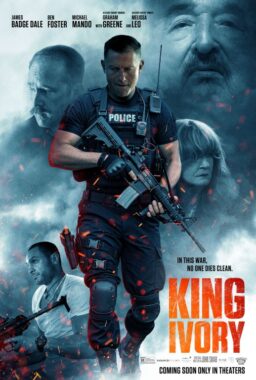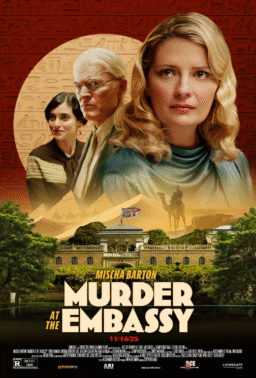More perhaps than any other single book, Jack Kerouac’s novel On the Road announced an end to the Eisenhower years and the beginning of the narcissistic, rebellious Sixties. It told the story of the first beatniks, those dropouts from the middle class who rode the highways from Maine to Mexico and raised hell, wrote poetry, loved unwisely, drank too well and did the basic engineering on the lifestyle that would eventually be run to exhaustion by the hippies. Kerouac’s novel starred a heroic proto-beat named Dean Moriarty, based on the legendary underground figure Neal Cassady. And now in “Heart Beat” we get the story of Neal and Jack and Neal’s wife. Sort of.
The movie’s based on a memoir written a few years ago by Carolyn Cassady, who was not one of the heroes of On the Road, and who, it now appears, had good reason to be less than enchanted with the beatnik lifestyle. The wives of famous men often have unique outlooks on their wonderful opportunities to live so close to greatness; when Bennett Cerf, visiting the James Joyces in Paris, described Joyce as a genius, Mrs. Joyce dryly replied, “That’s all very well for you to say – you don’t have to live with the bloody man.” Carolyn Cassady’s “Heart Beat” comes from the same fervent neighborhood of the soul.
But this movie is another matter altogether. How closely it resembles the facts I cannot say, but it paints a portrait of Jack and Neal as good buddies who drank, sank, hitchhiked, lied and fought their way around the America of the late 1940s (Kerouac described himself and Cassady as “furtives”), and then both fell in love with Carolyn. She married Neal, who stayed at home, sometimes, between time on the road, with Jack and a great deal of additional time spent on applied research into alcoholism. Jack was a drunk, too, and a lot of the movie deals with their attempts to patch things together in the little postwar suburban house in San Francisco where Carolyn tried to maintain a home.
This is not exactly the story we have in memory from the Kerouac legend, and there were long stretches of “Heart Beat” during which I found myself wishing instead for a film version of On the Road, That’s unfair, I guess – but what is director John Byrum trying to do in this movie? I’m not sure. The movie’s a triumph of art direction, all right; the locations, clothes, lighting, moods, music and whole tone of the performances are designed to lower a kind of nostalgic dropcloth over the story, and we’re constantly invited to read greater significance into dialogue and gestures because they took place during these now-lost times.
Fine, except that the significance doesn’t seem to be there. “Heart Beat” seems to exist almost entirely as a matter of style. The characters are wonderfully well played by Nick Nolte Sissy Spacek and John Heard – they have scenes together in which the round-robin of everyday dialogue is almost poetic – but nobody has given their characters anything to do except to be. They exist, we watch them, the decor is inspired, that’s it.
The attempts to add other characters from the period are mostly misguided. A character named “Ira,” inspired by Allen Ginsberg (who forbade use of his name), is so awkwardly drawn he comes off as a ’50s satire of a beatnik poet. Jazz musicians are so artfully “cool” they’re paralytic. Jack and Neal move through the worlds of coffee houses and jazz clubs as if they were backdrops, not habitations.
What finally happens is that the whole period – the conformist ’50s as well as the rebellious beats – gets frozen into the same flashback. Everything becomes part of the film’s nostalgic memory. The film seems to treasure the conformity of American mainstream society if only because it provides such an ideal contrast to Neal and Jack. This movie treats its events as so long ago, so finished and done with and bathed in a yellowing afterglow, that we don’t sense the very passion and rebelliousness it’s supposed to be about. What an irony for the first serious film about the Beats.



















